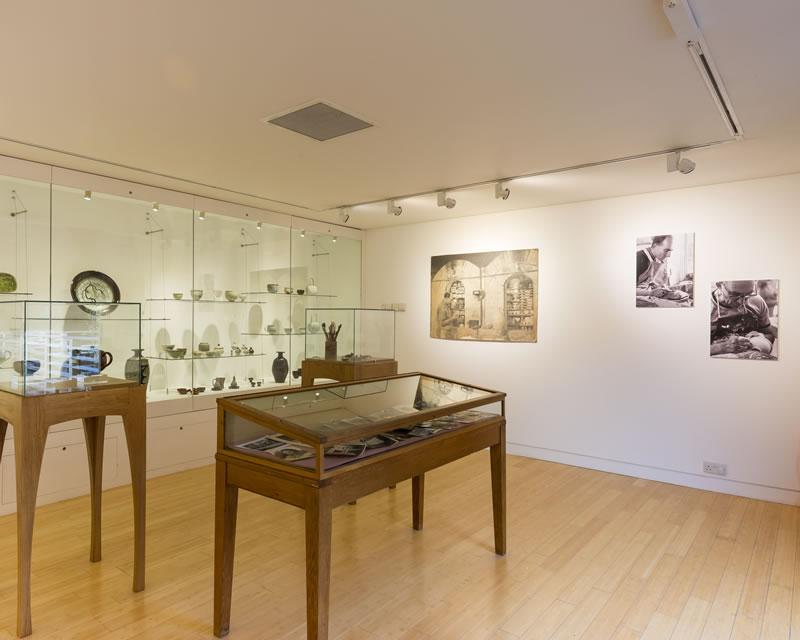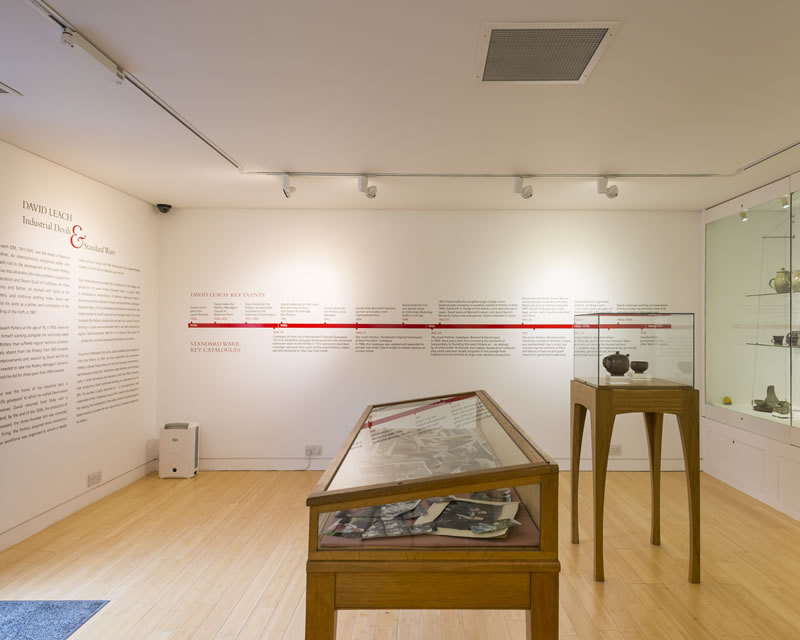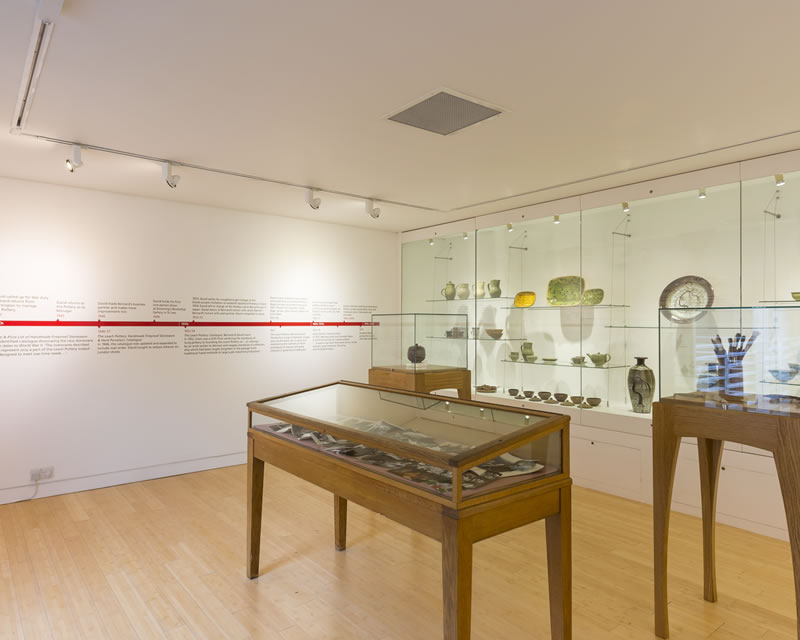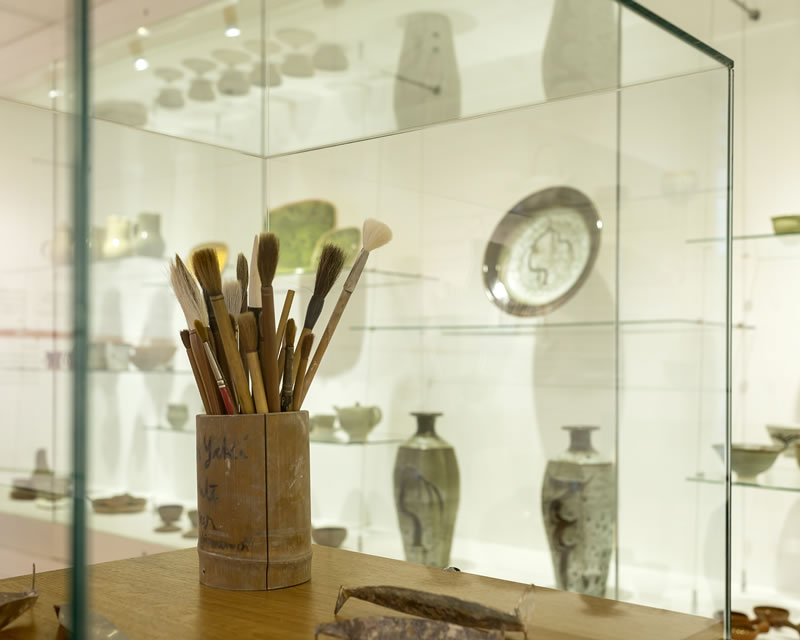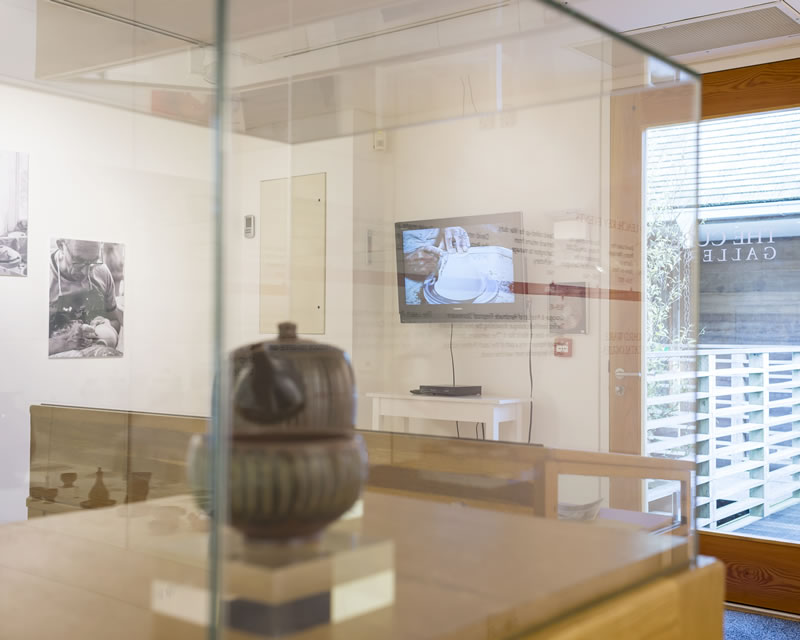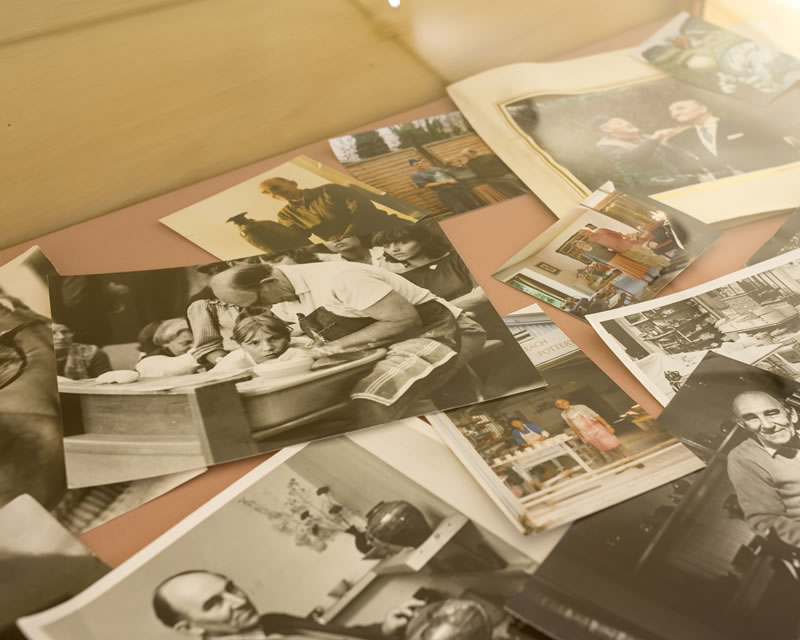David Leach: Industrial Devils & Standard Ware
13th September 2015 to 6th March 2016
David Andrew Leach OBE, 1911-2005, was the eldest of Bernard Leach’s five children. An internationally recognised potter who played a significant role in the development of the Leach Pottery, David was an active educationalist who also worked to support the Craft Potters Association and Devon Guild of Craftsmen. His three sons, John, Jeremy and Simon, all trained with David at his Lowerdown Pottery and continue potting today. David was appointed OBE for his work as a potter, and contribution to the wider understanding of the craft, in 1987.
David joined the Leach Pottery at the age of 19, in 1930, where he eventually found himself working alongside the technically adept Harry Davis in a Pottery that suffered regular technical problems. Bernard was largely absent from the Pottery, from 1932 onwards, and subsequent improvements and research by David led him to conclude that he needed to take the Pottery Managers’ Course in Stoke-on-Trent, which he did for three years from 1934 onwards.
To Bernard, Stoke was the home of the industrial devil: a ‘commercial scientific graveyard’ to which he wished David would not venture. However, David returned from Stoke with a modernizing zeal and, by the end of the 1930s, the production of earthenware had ceased, the three-chamber kiln was converted from wood to oil firing, the Pottery acquired more mechanical equipment, and the workforce was organised to ensure a steady supply of local labour with the introduction of an apprenticeship system, of which William Marshall was the first.
David departed the Pottery in 1955 shortly before the arrival of Bernard’s third wife, Janet: he then established the Lowerdown Pottery in Bovey Tracey where, for the first five years, he returned to earthenware production. David then made domestic and individual pots, in both stoneware and porcelain, from the 1960s onwards. Ever productive, David continued working at Lowerdown into his 90s: his journey is aptly described as ‘…a true exploration and celebration of the “craftsman’s way of life”, both for the integrity of the making, his involvement in the wider concerns of potters and his determination to evolve his own voice within a tradition shaped by his father’.

